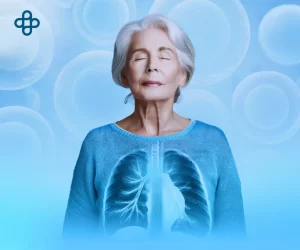Stem Cells and Depression. Despite efforts to improve pharmacological treatment for depression, approximately one-third of patients do not respond to conventional therapy with antidepressants. In recent years, other non-pharmacological therapies have been studied, including the use of mesenchymal stem cell therapy to treat depression.
Stem Cells and Depression
Experimental data support the consideration of mesenchymal stem cell therapy as a potential treatment for depression. This assumption is based on its anti-inflammatory and neurotrophic properties. However, clinical trials involving stem cell therapy for depression are currently underway, with no published results yet. According to an article published by the World Journal of Psychiatry on September 19, 2021.

Inflammation and Depression
Colossal research efforts have been made over the past 60 years to unravel and understand the neurobiological processes underlying depression. In 1968, Carroll stated in his article “Pituitary-Adrenal Function in Depression”. The following: “Chronic stress modulates the inflammatory process that plays a crucial role in the neurobiological aspects underlying depression. However, this research strategy has not led to the development of antidepressant medications.” Stem Cells and Depression
Interest in the role of immune and inflammatory mechanisms in depression is a natural consequence of HPA axis studies. Cortisol can modulate these responses. Furthermore, consistent data on the role of psychological stress in the development of depression involve alterations in immune functions. Mainly due to chronic inflammatory states.
The link between emotional stress, depression, and inflammation appears to involve evolutionary issues. Several lines of evidence suggest that metabolic, endocrine, and immune responses co-evolved, which helped animals remain vigilant. Animals need to actively search for food, exposing themselves to injury or predation. They also need to defend themselves against pathogens.
In addition to triggering a fight-or-flight response, stress is characterized by increases in heart rate, blood pressure, cortisol, and catecholamines. It also activates inflammatory pathways in peripheral blood mononuclear cells. However, when stress exposure occurs continuously without resolution, metabolic and physiological responses are triggered. These responses contribute to the formation of chronic inflammatory states.

Stem Cell-Based Therapies for Neuroinflammatory Disorders
Stem cell therapies have become a standard for treating subacute and chronic inflammatory processes and neurological disorders. Research has suggested the potential use of adult stem cell therapy for various neurological conditions such as multiple sclerosis, autoimmune encephalomyelitis, Alzheimer’s disease, other dementia-related conditions, Parkinson’s disease, and epilepsy. Most studies emphasize the immunomodulatory nature of adult stem cells, with their therapeutic efficacy related to neurological diseases, particularly by triggering anti-inflammatory states.
For example,
In epilepsy, convulsive activity can induce proinflammatory molecules, affecting the severity and frequency of seizures. Transplantation of bone marrow mononuclear cells (BMMC) or human umbilical cord blood mononuclear cells in experimental models of epilepsy induced significant improvements in neurological function.
After a seizure, brain injury induces a highly regulated cascade of biological events, characterized by the release of cytokines, chemokines, and protectins in the neuronal microenvironment, which was attenuated by adult stem cell transplantation, reducing inflammatory states and promoting tissue repair through cell-cell interactions and paracrine effects. Additionally, some evidence has shown that adult stem cells stimulate angiogenesis and endothelial repair through paracrine actions. In Alzheimer’s disease, MSCs have been shown to reduce IL-1, IL-2, TNF-α, and IFN-γ in serum and oxidative stress, demonstrating an anti-inflammatory effect.
Among the most relevant mechanisms of action of stem cells is the release of extracellular vesicles carrying soluble factors, microRNAs, and organelles. Initially, the release of extracellular vesicles was thought to represent an elimination mechanism through which cells eliminate unwanted proteins and other molecules.
Several studies have described the beneficial actions of MSCs through the delivery of exosomes instead of cells. Therefore, MSCs or exosome transplantation could offer an efficient and safe non-pharmacological therapy for neurological conditions.
Clinical Trials in Depressive Patients
The results of different experimental studies strongly support the potential therapeutic use of stem cells in the treatment of depression. However, although experimental model data have shown beneficial effects in depression, there are still gaps to explore. Further studies are needed to clarify if any type of MSC could be as effective and safe as an antidepressant therapy.
As technology and knowledge in cell-based products continue to develop, it becomes easier to identify the best alternative (cells or exosomes) to test as an antidepressant treatment, reducing costs and establishing routines.
I invite you to delve deeper into this fascinating topic by reading our article “What Are Stem Cells?”.





